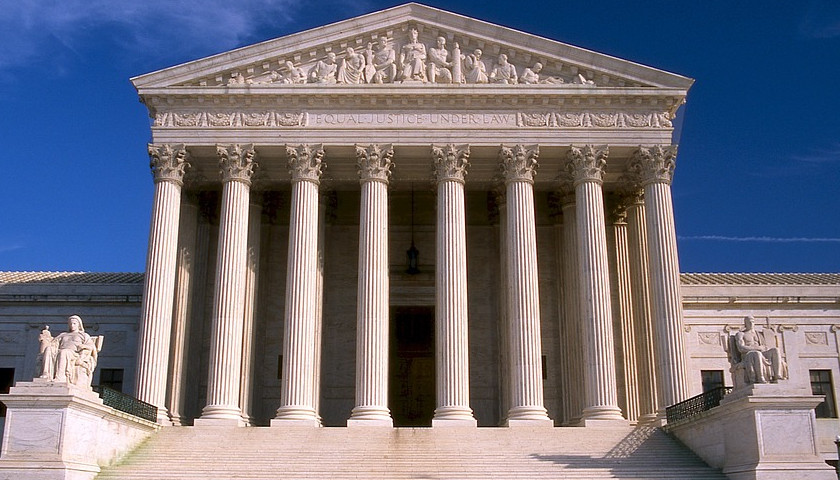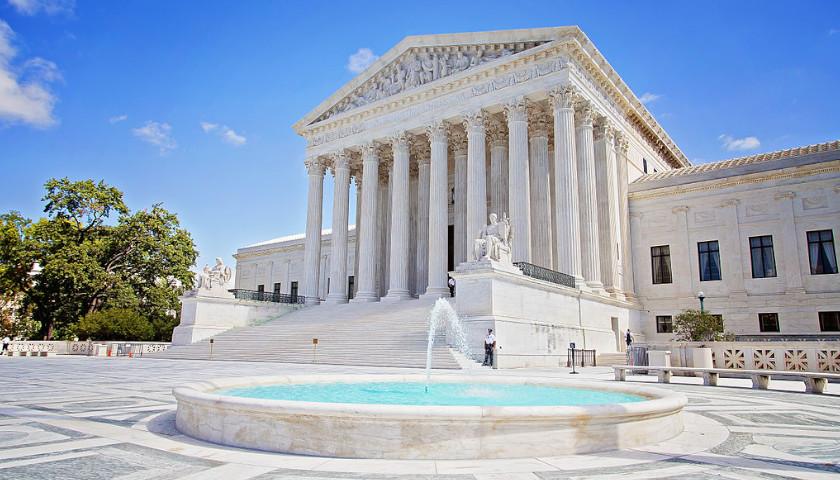The U.S. Supreme Court announced last week that in March it will hear partisan gerrymandering cases involving North Carolina and Maryland.
These partisan gerrymandering cases are the first of their kind to be heard since Justice Brett Kavanaugh replaced Justice Anthony Kennedy on the court.
The decision to hear these cases will likely have ramifications for a suit filed last November by Common Cause and the North Carolina Democratic Party.
The case, Common Cause v. Lewis, alleges partisan gerrymandering in district maps drawn by the Republican majority-held legislature. The case was recently denied a delay and remanded back to North Carolina Superior Court by Federal District Judge Louise Flanagan.
Filed in Wake County court, the complaint demands the maps be redrawn for use in 2020 and alleges that the districts violate the state’s constitution in three areas: The Equal Protection Clause, the Free Elections Clause, and the Freedom of Speech and Freedom of Assembly clauses.
The suit also alleges that the current districts are “intentionally burdening the protected speech and/or expressive conduct of Plaintiffs and other Democratic voters, including members of Common Cause and the NCDP, based on their identity, their viewpoints, and the content of their speech.”
“Because lawmakers stubbornly refuse to consider passing redistricting reform, we’re left with no choice but to litigate,” said Bob Phillips, executive director of Common Cause North Carolina said in a statement.
“This isn’t about ‘good government’ – it’s about power,” Pat Ryan, Senate leader Phil Berger’s spokesman, said in an email to The News and Observer. “Democrats had no problem with the process they employed for over 100 years until they lost control of the General Assembly in 2010.”
Also involved with the case is former lawyer for both North Carolina Gov. Roy Cooper and the Hillary Clinton Campaign, Marc Elias of the D.C. law firm Perkins Coie. Elias is also involved with the National Democratic Redistricting Committee, a group focused on “fair redistricting” created and run by former President Barack Obama and former Attorney General Eric Holder.
https://twitter.com/marceelias/status/1062382430915571712
“Only North Carolina Democrats would file a lawsuit to overturn districts that they just won,” North Carolina Democratic Party Executive Director fired back in response to Elias.
It’s worth noting that multiple Democratic candidates across the state did win their races in allegedly partisan gerrymandered districts. Those wins helped to break the Republican super-majority in the state legislature.
For as long as map drawing has been in practice, Democrats and Republicans alike have attempted to draw lines that benefit their party candidates. Over the last decade or more, the issue of partisan gerrymandering has ping-ponged through the court system.
Last year, the Supreme Court failed to issue a ruling on the alleged partisan gerrymandering case in Wisconsin of Gill v. Whitford.
The Supreme Court wrote in the Gill v. Whitford opinion that “Courts have a critical role to play in curbing partisan gerrymandering.” Yet in that same opinion, the Supreme Court refused to hear the case and remanded it back to the lower courts.
That same day as the Gill ruling, the Supreme Court also declined to issue a clear decision in the Maryland partisan gerrymandering case. Instead, the court kept in place a previous ruling by a lower federal court, which allowed the use of the current maps for the 2018 election cycle.
Consistent with the Gill and Maryland actions, the Supreme Court then sent the North Carolina partisan gerrymandering case (Common Cause v. Rucho) back down to the lower courts.
In Rucho, a lower court ruled in January of 2018 that the maps were an unconstitutional partisan gerrymander.
The court then blocked the state from using the maps for future elections, which was noted by both plaintiff and defendant as problematic in an election year. A motion for a stay pending Supreme Court review was granted to the defendants on September 12, 2018.
All eyes will be on the Supreme Court in March to see whether or not it will set precedent or maintain that map drawing is a state level issue and the federal courts should stay out of it.
Read the complaint:
[pdf-embedder url=”https://tennesseestar.com/wp-content/uploads/2019/01/AP-Dillion_111318-Common-Cause-V-Lewis-No-518-CV-00589-Complaint.pdf” title=”AP-Dillion_111318 Common-Cause V Lewis No 518-CV-00589 -Complaint”]
Read the remand order:
[pdf-embedder url=”https://tennesseestar.com/wp-content/uploads/2019/01/AP-Dillon_010219-Common-Cause-V-Lewis-NO-5-18-CV-589-FL-REMAND-ORDER-NC-Superior-Ct.pdf” title=”AP-Dillon_010219 Common Cause V Lewis NO 5 18-CV-589-FL- REMAND ORDER – NC Superior Ct”]
– – –
A.P. Dillion is a reporter at Battleground State News.




